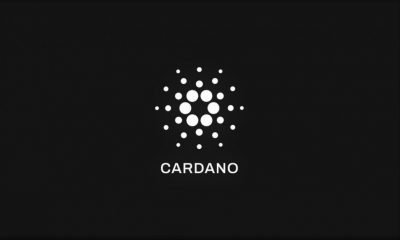EOS Investor
How to Buy EOS | Buy EOS in 4 Steps (July 2025)

Securities.io maintains rigorous editorial standards and may receive compensation from reviewed links. We are not a registered investment adviser and this is not investment advice. Please view our affiliate disclosure.
Table Of Contents
EOS (EOS -6.6%) is a next-generation blockchain ecosystem that continues to receive heavy media coverage for its record-breaking ICO and unique characteristics. Importantly, the EOS.IO ecosystem entered the market with the goal of simplifying the programming and integration of smart contracts and the development of decentralized applications (Dapps).
To learn more visit our Investing in EOS guide.
How to Buy EOS (EOS) in 4 Steps
- 1.
Compare Crypto Exchanges – Explore our list of top cryptocurrency exchanges offering this token (EOS) for purchase. - 2.
Create an Account – Complete the registration process by verifying your email address and identity to access the platform. - 3.
Make a Deposit – Fund your account using a Debit Card, Credit Card, Wire Transfer, or Bitcoin. - 4.
Buy Token – Use your deposited funds to purchase the token (EOS) seamlessly.
1. Uphold
A top exchange in the United States, Uphold is an experienced and extremely innovative trading platform that should be able to meet your needs for trading across a number of cryptocurrencies, including EOS (EOS). Beyond the ease of use and innovative features within the trading platform, what stands out about Uphold is the credibility it has gained in the industry.
Uphold offers an extremely intuitive trading experience on both desktop and mobile apps. The trading view is completely customizable with the assets that you trade the most and is very easy to navigate while providing a modern feel on both desktop and mobile. It is a very popular and suitable choice, particularly for new traders.
Besides being visibly appealing, the Uphold trading platform allows you to place your trades with great ease. With just a couple of clicks, you can make trades directly from your deposit method without even having to wait for funds to clear your account. This one-step ordering is another innovation from a company that prides itself on the usability of its platform. Uphold also provides the ability to execute limit orders.
Germany & Netherlands residents are prohibited.
Read our Uphold Review or visit Uphold.
Uphold Disclaimer: Terms Apply. Cryptoassets are highly volatile. Your capital is at risk. Don’t invest unless you’re prepared to lose all the money you invest. This is a high-risk investment, and you should not expect to be protected if something goes wrong.
2. Coinbase
Coinbase (COIN +1.56%), established in 2012, is a leading platform for buying, selling, and managing over 250 cryptocurrencies. As a Nasdaq-listed company, Coinbase offers users transparency and trust. The platform supports advanced trading tools, zero trading fees for Coinbase One members, and rewards programs that allow users to earn up to $400. With $226 billion traded quarterly, Coinbase is a major player in the global crypto market.
Coinbase operates in over 100 countries, including Australia, Canada, France, Germany, the Netherlands, Singapore, the United Kingdom, and the United States (excluding Hawaii). With top-tier security, cold storage, and educational tools, it’s a trusted platform for both beginners and advanced traders. Accessible, secure, and user-friendly, Coinbase is a global leader in crypto management.
Read our Coinbase Review or visit Coinbase.
3. Kraken
Founded in 2011, Kraken is one of the most trusted names in the cryptocurrency industry. It has over 13,000,000 users and over $207 billion in quarterly trading volume.
From humble beginnings, Kraken now offers over 400 digital assets, including EOS (EOS). For more sophisticated investors, Kraken also offers futures and margin trading.
Kraken has continued to evolve its platform and commitment to the industry by being one of the first exchanges to offer buying opportunities on new tokens.
Kraken provides trading access in over 190 countries, including Australia, Canada, Europe, and the United States (excluding New York and Washington state).
Kraken Disclaimer: Not investment advice. Crypto trading involves risk of loss. Payward European Solutions Limited t/a Kraken is authorised by the Central Bank of Ireland.
Read our Kraken Review or visit Kraken.
4. Binance
Binance is one of the world's largest and most well-known cryptocurrency exchanges. The benefits of purchasing EOS (EOS) here are lower fees than competing exchanges and increased liquidity, enabling you to buy and sell quickly to take advantage of market-moving news.
Use Discount Code: EE59L0QP for 10% cashback on all trading fees.
This exchange is best for investors residing in Australia, Singapore, the UK, and internationally. Canadian and USA residents are prohibited.
Read our Binance Review or visit Binance.
5. KuCoin
KuCoin is a well-known name in the industry and one of the most competitive when it comes to fees and trading costs. The exchange has grown exponentially from its early days of offering only crypto-to-crypto trading. It now offers a varied range of services, including a P2P exchange capability and purchasing with credit or debit cards.
KuCoin currently offers EOS (EOS) cryptocurrency trading and over 300 other popular tokens. It is often the first to offer buying opportunities for new tokens.
USA Residents are Prohibited.
Read our KuCoin Review or visit KuCoin.
6. Gate.io
Established in 2013, Gate.io has grown into a reputable trading platform. While it is not the most popular exchange, it provides users with an easy-to-use interface for beginners while maintaining robust and advanced charts for various skill levels – including technical traders. The exchange boasts many altcoins, including EOS (EOS), and is often the first exchange to add new tokens. Notably, Gate.io maintains a strong stance against any type of market manipulation.
This exchange currently accepts Australian & UK residents.
USA & Canada residents are prohibited.
Read our Gate.io Review or visit Gate.io.
EOS USD (EOS -6.6%)
What is EOS?
EOS is an open-source blockchain network, launched by Block.one, in 2017. The project is structured to serve both small and commercial-scale operations.
What does it do?
Similar to Ethereum, EOS is a blockchain network, capable of hosting/executing decentralized applications (dApps).
This is achieved through the use of EOS tokens, which act as a cryptocurrency on the EOS network; much like how Ether is used as ‘gas’ on the Ethereum network.
How does EOS work?
EOS operates through the use of a delegated proof-of-stake protocol (DPOS). This governance model was chosen, with the goal of providing, not only scalability but to mitigate centralization of the network.
Delegated proof of stake allows for those with active wallets, on the EOS network, to vote for representatives to act as ‘validators’. Validation duties surrounding network transactions are then delegated to these representatives for completion.
Projected developments?
As development continues, it is expected that the team behind EOS will be focusing on a few key areas.
- Scalability
- App development
- Security
Underlying Ideology?
The driving theme behind the EOS project is similar to Ethereum – create a fair and transparent network, which supports both payments and dApps. The main differentiator between the two is the choice by EOS to use delegated proof-of-stake. This was done with the goal of ensuring continued decentralization.
Acceptance and Controversies?
While the potential for EOS is massive, the project has not come without its share of controversies. The top two, which continue to plague the perception of EOS, are as follows.
- Centralization – One of the main draws towards most blockchain-based projects is the promise of decentralization. While this was also a promise of EOS, the first 2 years of operation have seen the project become increasingly centralized. More specifically, much of this has seen a power shift to Chinese-based companies, raising fears of government manipulation.
- Extended ICO -$4.1 billion – this is the amount raised by Block.one, during an ICO that was held over the course of an entire year. While some are ‘put off’ by the power that Block.one now holds over the network, there are many that simply believe this ICO was ‘over the top’. They believe there was no real reason why $4.1 billion was needed to conceptualize, develop and launch a successful network, and that this was simply a company taking advantage of anyone they could, during the ICO boom.
Regulation?
It would appear as though regulatory issues surrounding EOS have been settled. The SEC has made it clear that the vast majority of ICOs were conducted as unregistered securities offerings; EOS was no exception to this.
In September 2019, EOS settled charges with the SEC surrounding their ICO. This settlement saw Block.one pay a $24 million civil penalty.
Who Made It?
EOS is the product of parent company, Block.one.
Latest on EOS
EOS (EOS) And Valuta (A): For Large-Scale dApps
EOS price jumps 8%; can bulls reclaim $1 this time?
EOS Surges Over 10% Amid Market Uptick; Still Far Below All-Time High
Crypto market's weekly winners and losers – SPX, HYPE, PYTH, EOS
5 Altcoins Crashed This Week—But Could Be the Biggest Winners Soon
3 Made in USA Coins to Watch After Trump's New EU Tariff
Daniel is a big proponent of how blockchain will eventually disrupt big finance. He breathes technology and lives to try new gadgets.
You may like


Investing in EOS (EOS) – Everything You Need to Know


Investing In Ethereum (ETH) – Everything You Need to Know


Investing In Cardano (ADA) – Everything You Need to Know


Investing In Solana (SOL) – Everything You Need to Know


Investing In Symbol (XYM) – Everything You Need to Know


Investing in Polygon (POL) – Everything You Need to Know